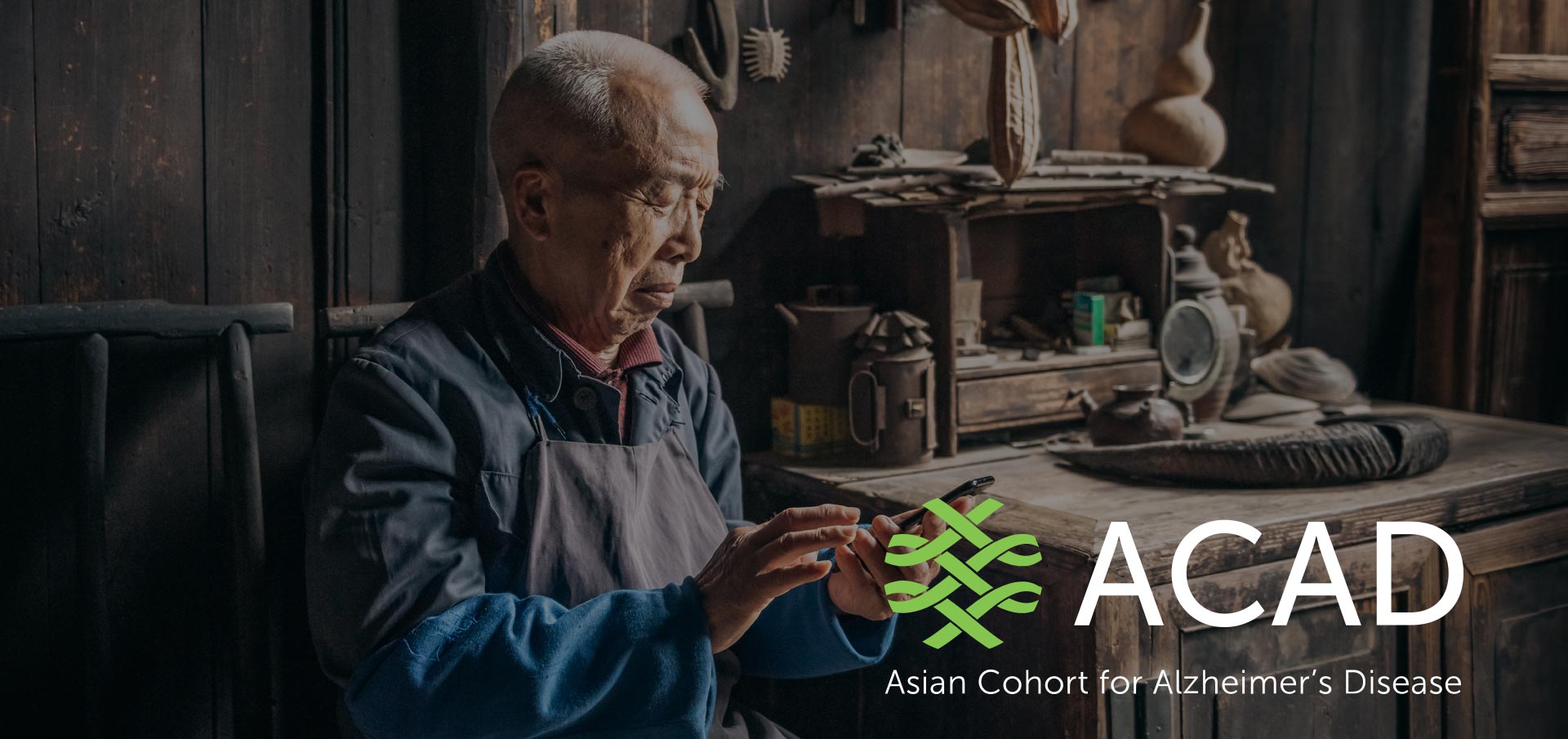
The Asian Cohort for Alzheimer’s Disease (ACAD) is pleased to announce a partnership with National Centralized Repository for Alzheimer’s Disease and Related Dementias (NCRAD) to analyze biosamples collected through ACAD sites. In the next few months, we will begin analyzing over 100 plasma samples collected through ACAD, and an additional 300+ plasma samples from co-enrolled participants and memory clinics at ACAD sites.
“This study will represent the first large-scale biomarker analysis of plasma samples for East Asian populations in North America,” said Dr. Wai Haung Yu, Associate Professor at Centre for Addiction and Mental Health (CAMH), University of Toronto, and a leader of this collaboration. Biomarkers for Alzheimer’s disease are crucial and plasma biomarkers provide readily accessible prognostic data. This will ensure clinical trial readiness and will significantly reduce the number of participants required to run AD-related clinical trials. Biomarkers may also be different demographically (sex, age). This study will examine heterogeneity of Ab42, Ab40, Tau-181, NfL and GFAP, markers that have been tested in Caucasian populations. Examination of other races and ethnic groups is also crucial to identify if there are similarities or differences between groups for diagnostic feasibility using the platforms developed at NCRAD and colleagues around the world.
NCRAD is a global leader in Alzheimer’s disease research and houses more than 100,000 unique participants and distributed over 350,000 biological samples around the world. In addition to ACAD, NCRAD houses biobanks of over 50 clinical studies. This partnership represents the first of its kind for analysis of plasma biomarkers for Alzheimer’s disease in East Asians in North America and will be important to compare with other ethnic populations housed at NCRAD and other biobanks.
The Asian Cohort for Alzheimer’s Disease (ACAD) is an international collaboration with the goal of compiling a robust sample size of Asian American and Canadian subjects for Alzheimer’s disease (AD) research. Making up 6% and 10% of the US and Canadian populations respectively, Asians are the fastest growing populations in both countries yet they are underrepresented in AD research. ACAD aims to address this gap by starting with a cohort of individuals of Chinese, Korean, and Vietnamese ancestry, and later extending to other major Asian populations in both countries. Currently ACAD plans to collect and analyze DNA from 1,000 individuals. As the project evolves, ACAD plans to recruit more participants and expand our data collection protocols to support other Asian American and Asian Canadian populations/communities. ACAD is funded by an National Institute on Aging R56 award directed by Dr. Li-San Wang, Professor of Pathology and Laboratory Medicine and Co-Director of Penn Neurodegeneration Genomics Center (PNGC).
My husband first experienced confusion and loss of memory in March of 2000 while undergoing rehab for alcoholism. Being home seemed to help him until 2006 when he gradually began experiencing Alzheimer’s symptoms. He had four to five hours a day where he wants to get a “greyhound” to “go home.” Also, he thinks I am his sister and believes he has rented a car (he hasn’t driven in five to 10 years). His personal hygiene was in the tank — it was necessary for him to change two to three times a day. Without long-term insurance for his care, it was becoming stressful to care from him. this year our family doctor introduced and started him on Healthherbsclinic Alzheimer’s Disease Herbal Tincture, 6 months into treatment he improved dramatically. At the end of the full treatment course, the disease is totally under control. No case of Alzheimer’s, hallucination, forgetfulness, and other he’s strong again and able to go about daily activities. Visit Health Herbs Clinic website www. healthherbsclinic .com